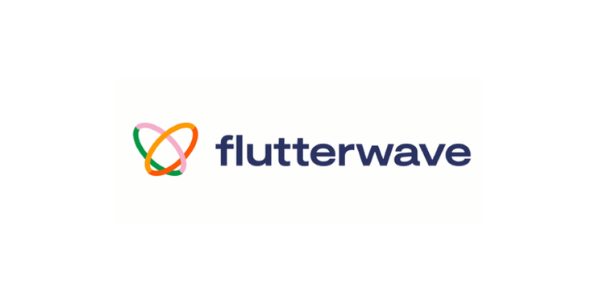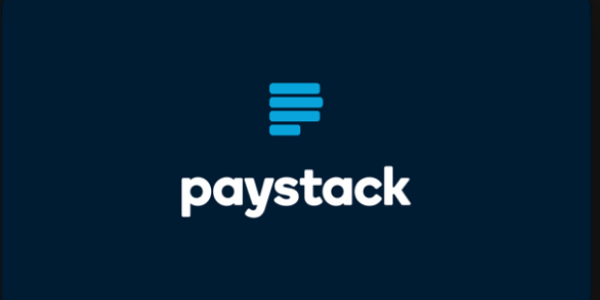Introduction
Artificial intelligence is rapidly transforming industries across the globe, and Nigeria is increasingly recognized as a rising hub for AI innovation in West Africa. The country is home to a vibrant ecosystem of startups, research centers, and technology companies specializing in AI-driven solutions for education technology, healthcare automation, and financial services. With Africa’s largest population, a growing pool of skilled developers, and government support for digital transformation, Nigeria is attracting international attention as a destination for AI investment and talent development across the continent.
This comprehensive guide explores the landscape of AI companies in Nigeria, profiling key players in educational technology automation, healthcare AI solutions, and fintech innovation. Whether you are an investor, entrepreneur, or tech enthusiast, understanding Nigeria’s AI ecosystem offers valuable insights into the future of artificial intelligence in Africa’s most populous nation and emerging digital economy.
Why Nigeria Is Emerging as an AI Powerhouse
Nigeria’s emergence as an AI leader in Africa is fueled by several compelling factors that distinguish it from other regional markets:
Population Advantage: With over 220 million people, Nigeria represents Africa’s largest market, providing enormous scale for AI companies to test, deploy, and monetize their solutions across diverse demographic segments.
Technical Talent Pool: The country boasts prestigious technical universities, including the University of Lagos, Ahmadu Bello University, and the University of Nigeria, producing thousands of computer science graduates and software engineers annually who are increasingly specializing in artificial intelligence and machine learning.
Mobile-First Infrastructure: Nigeria’s mobile-first digital adoption provides an ideal testing ground for AI applications, with over 100 million internet users primarily accessing digital services through smartphones, creating unique opportunities for AI-powered mobile solutions.
Government Digital Initiatives: The Nigerian government’s commitment to digital transformation through initiatives like the National Digital Economy Policy and Strategy, the Nigeria Startup Act, and various tech hub developments is accelerating AI adoption across public and private sectors.
International Investment: Growing venture capital interest from both African and international investors is providing crucial funding for Nigerian AI startups, with several companies receiving multi-million dollar investments to scale their operations.
Regional Market Access: As the economic powerhouse of West Africa, Nigerian AI companies often serve as gateways to the broader Economic Community of West African States (ECOWAS) market, providing access to over 400 million potential customers across the region.
Leading Nigerian AI Companies in Educational Technology
Nigeria’s education sector presents massive opportunities for AI innovation, with challenges around access, quality, and scalability that artificial intelligence can uniquely address. The country’s educational technology startups are leveraging AI to democratize learning, improve educational outcomes, and bridge the gap between traditional educational infrastructure limitations and modern learning requirements.
uLesson
www.ulesson.com

uLesson stands as Nigeria’s most prominent educational technology company, revolutionizing how students across Africa access quality education through AI-powered learning platforms. The company employs sophisticated machine learning algorithms to personalize learning experiences, adapting content delivery based on individual student performance, learning pace, and comprehension levels. Their artificial intelligence system analyzes vast amounts of student interaction data to optimize lesson sequences, identify knowledge gaps, and provide targeted interventions that improve learning outcomes.
The platform’s AI capabilities extend to automated content generation, where machine learning models help create educational materials tailored to different learning styles and academic levels. uLesson’s intelligent tutoring system provides real-time feedback to students, simulating one-on-one tutoring experiences that were previously accessible only to privileged students. Their AI-driven analytics help educators and parents track student progress with unprecedented granularity, identifying areas where additional support may be needed.
Key Solutions:
- Personalized AI learning pathways
- Intelligent content recommendation systems
- Automated performance assessment and feedback
- AI-powered educational content generation
Gradely
www.gradely.ng

Gradely represents the next generation of AI-powered educational assessment and learning analytics in Nigeria. The platform uses advanced artificial intelligence to transform traditional paper-based testing into dynamic, adaptive digital assessments that provide immediate insights into student understanding and learning progress. Their machine learning algorithms analyze student responses in real-time, adjusting question difficulty and focus areas based on demonstrated competency levels.
The company’s AI technology extends beyond simple automated grading to provide sophisticated learning analytics that help educators understand not just what students know, but how they learn best. Gradely’s artificial intelligence can identify patterns in student mistakes, predict areas where students are likely to struggle, and recommend specific interventions to improve learning outcomes. Their platform serves as a comprehensive educational intelligence system that bridges the gap between assessment and personalized instruction.
Key Solutions:
- AI-driven adaptive assessment platforms
- Intelligent learning analytics and reporting
- Automated curriculum alignment and mapping
- Predictive modeling for educational outcomes
Nigerian AI Companies Revolutionizing Healthcare
The healthcare sector in Nigeria faces significant challenges related to access, affordability, and quality of care, particularly in rural and underserved communities. AI companies in this space are developing innovative solutions that leverage artificial intelligence to democratize healthcare access, improve diagnostic accuracy, and optimize healthcare delivery across the country’s diverse geographic and economic landscape.
Wellvis
www.wellvis.org

Wellvis is pioneering AI-powered healthcare solutions in Nigeria, focusing on improving access to quality healthcare through intelligent telemedicine and diagnostic platforms. The company employs advanced machine learning algorithms to enable remote health monitoring, automated preliminary diagnosis, and intelligent health risk assessment. Their artificial intelligence system can analyze symptoms, medical history, and vital signs to provide preliminary health assessments and recommendations for appropriate care levels.
The platform’s AI capabilities include sophisticated image analysis for basic diagnostic procedures, natural language processing for symptom analysis, and predictive modeling for health risk assessment. Wellvis’s technology is particularly valuable in rural areas where access to healthcare professionals is limited, providing AI-powered health screenings and monitoring that can identify serious health conditions early and facilitate timely interventions.
Key Solutions:
- AI-powered telemedicine platforms
- Intelligent diagnostic assistance systems
- Automated health risk assessment tools
- Machine learning-based medical image analysis
LifeBank

www.lifebank.ng
LifeBank has established itself as a leader in AI-driven healthcare logistics and supply chain optimization across Nigeria. The company uses artificial intelligence to address critical challenges in medical supply distribution, blood bank management, and emergency healthcare delivery. Their machine learning algorithms optimize delivery routes, predict demand for medical supplies, and ensure that life-saving resources reach where they are needed most efficiently.
The platform’s AI technology includes sophisticated demand forecasting that helps hospitals and clinics maintain optimal inventory levels, reducing waste while ensuring availability of critical supplies. LifeBank’s artificial intelligence can predict blood supply needs, optimize donor recruitment, and coordinate emergency medical deliveries with unprecedented efficiency. Their technology is particularly crucial in Nigeria’s challenging logistics environment, where AI-powered optimization can mean the difference between life and death.
Key Solutions:
- AI-optimized medical supply chain management
- Intelligent blood bank inventory systems
- Predictive analytics for healthcare demand
- Emergency delivery optimization algorithms
Nigerian Fintech Leaders Leveraging AI Innovation
Nigeria’s fintech sector represents one of Africa’s most dynamic and innovative technology ecosystems, with AI playing an increasingly central role in financial inclusion, fraud prevention, and payment optimization. Nigerian fintech companies are leveraging artificial intelligence to address unique challenges in the African financial landscape, from informal economy integration to cross-border payment facilitation.
Flutterwave
www.flutterwave.com

Flutterwave has emerged as Nigeria’s most successful fintech export, becoming a global leader in payment processing technology powered by sophisticated artificial intelligence. The company employs advanced machine learning algorithms for fraud detection, risk assessment, and payment optimization across multiple African markets. Their AI technology processes millions of transactions daily, learning from patterns to improve security and reduce false positives that can disrupt legitimate commerce.
The platform’s artificial intelligence capabilities extend to dynamic pricing, where machine learning models optimize transaction fees based on risk profiles, market conditions, and customer behavior. Flutterwave’s AI-powered analytics provide merchants with intelligent insights into customer behavior, sales patterns, and market trends that enable data-driven business decisions. Their technology has been instrumental in facilitating cross-border commerce across Africa, with AI algorithms optimizing currency conversion, regulatory compliance, and transaction routing.
Key Solutions:
- AI-powered fraud detection and prevention
- Intelligent payment routing and optimization
- Machine learning-based risk assessment
- Dynamic pricing and fee optimization algorithms
Paystack
www.paystack.com

Paystack, now part of Stripe, represents one of Nigeria’s most significant fintech success stories, built on a foundation of AI-powered payment automation and optimization. The company uses artificial intelligence to streamline online payment processes, reduce transaction failures, and improve conversion rates for businesses across Nigeria and beyond. Their machine learning algorithms continuously optimize payment flows, reducing friction and improving success rates for online transactions.
The platform’s AI technology includes sophisticated fraud prevention systems that analyze transaction patterns, user behavior, and risk indicators in real-time to prevent fraudulent activities while minimizing impact on legitimate customers. Paystack’s artificial intelligence helps businesses understand customer payment preferences, optimize checkout processes, and improve overall payment experiences through intelligent automation and personalization.
Key Solutions:
- Intelligent payment flow optimization
- AI-driven fraud prevention systems
- Automated transaction failure recovery
- Machine learning-powered conversion optimization
AI Research and Development Centers in Nigeria
Nigeria’s AI ecosystem is strengthened by a growing network of research institutions, innovation hubs, and academic centers that bridge the gap between theoretical AI research and practical commercial applications. These centers are crucial for developing local AI talent, conducting relevant research, and facilitating technology transfer from academia to industry.
University of Lagos Computer Science Department: Conducts cutting-edge research in artificial intelligence, machine learning, and data science, with particular focus on applications relevant to African markets and challenges.
Nigerian Institute for Advanced Legal Studies: Developing AI applications for legal research, case analysis, and judicial decision support systems that could transform Nigeria’s legal sector.
Covenant University Centre for Research Innovation and Discovery: A collaborative research center advancing AI solutions for agriculture, healthcare, and education sectors across Nigeria.
These institutions facilitate partnerships between academic researchers and industry practitioners, ensuring that AI development in Nigeria is grounded in solid scientific research while addressing real-world challenges facing Nigerian society and economy.
AI Consulting and Technology Development Ecosystem
Nigeria hosts a rapidly growing ecosystem of AI consulting firms, software development companies, and technology service providers that help businesses across various sectors adopt and implement artificial intelligence solutions. These companies play crucial roles in democratizing AI access and helping traditional businesses leverage AI technologies for competitive advantage.
The consulting ecosystem includes specialized firms focusing on AI strategy development, implementation support, and custom AI solution development. Many of these companies work with multinational corporations, government agencies, and local businesses to design and deploy AI systems that address specific Nigerian market needs and constraints.
The Role of AI in Nigerian Financial Inclusion
Artificial intelligence is playing a transformative role in advancing financial inclusion across Nigeria, where a significant portion of the population remains unbanked or underbanked. AI technologies are enabling new forms of credit assessment, financial service delivery, and risk management that extend financial services to previously underserved populations.
Machine learning algorithms analyze alternative data sources, including mobile phone usage patterns, social media activity, and transaction histories, to assess creditworthiness for individuals without traditional credit histories. This AI-powered approach to credit scoring is opening up access to loans, insurance, and other financial services for millions of Nigerians who were previously excluded from formal financial systems.
AI-powered chatbots and virtual assistants are also improving financial literacy and service accessibility, providing 24/7 customer support in local languages and helping users navigate complex financial products and services. These technologies are particularly important in Nigeria’s multilingual environment, where AI can bridge language barriers and improve service accessibility.
Educational Technology Innovation and AI Integration
Nigeria’s educational technology sector is experiencing rapid growth, driven by AI innovations that address longstanding challenges in the country’s education system. Artificial intelligence is enabling personalized learning experiences, automated assessment systems, and intelligent tutoring platforms that can scale quality education delivery across Nigeria’s vast geographic area.
AI-powered educational platforms are particularly valuable in addressing Nigeria’s teacher shortage and educational infrastructure gaps. Virtual AI tutors can provide consistent, high-quality instruction to students in remote areas, while intelligent assessment systems can provide immediate feedback and adaptive learning pathways that adjust to individual student needs and learning paces.
The integration of AI in education is also enabling new forms of skills development and vocational training that align with Nigeria’s economic development needs. AI-powered platforms can analyze job market trends, identify skill gaps, and provide targeted training programs that prepare Nigerian workers for emerging economic opportunities.
Healthcare AI and Telemedicine Development
Nigeria’s healthcare AI sector is addressing critical challenges related to healthcare access, quality, and affordability across the country. Artificial intelligence is enabling new forms of remote diagnosis, treatment recommendation, and health monitoring that can extend quality healthcare services to underserved communities.
AI-powered diagnostic tools are particularly valuable in Nigeria’s context, where specialist medical expertise is often concentrated in urban areas. Machine learning algorithms can analyze medical images, symptoms, and patient data to provide preliminary diagnoses and treatment recommendations, helping general practitioners provide better care and identify cases that require specialist attention.
Telemedicine platforms powered by AI are also improving healthcare accessibility, enabling remote consultations, medication management, and health monitoring that reduce the need for physical hospital visits. These technologies are particularly important during health emergencies and for managing chronic conditions that require ongoing monitoring and care.
Challenges and Opportunities for Nigerian AI Companies
While Nigeria’s AI sector shows tremendous promise, companies in this space face several significant challenges that must be addressed to realize the full potential of artificial intelligence in the Nigerian market.
Infrastructure Limitations: Inconsistent electricity supply and limited internet connectivity in some areas can constrain AI deployment and adoption, particularly for solutions requiring continuous connectivity or high computational resources.
Skills Development: While Nigeria produces many technology graduates, there is still a need for more specialized AI and machine learning expertise to support the growing demand for AI solutions across various sectors.
Regulatory Framework: The development of appropriate regulatory frameworks for AI applications, particularly in sensitive sectors like healthcare and finance, is crucial for building trust and ensuring responsible AI deployment.
Funding Access: While venture capital investment in Nigerian AI companies is growing, access to adequate funding for scaling AI solutions remains a challenge, particularly for early-stage companies.
Despite these challenges, the opportunities for AI companies in Nigeria are substantial. The country’s large market, growing digital adoption, and significant development challenges create enormous potential for AI solutions that can deliver meaningful social and economic impact.
Conclusion: Nigeria’s Role in the Global AI Ecosystem
Nigeria has positioned itself as a dynamic and rapidly evolving player in the global AI ecosystem, with particular strengths in educational technology, healthcare innovation, and financial technology. The country’s combination of large market size, growing technical talent, entrepreneurial energy, and significant development challenges creates a unique environment for AI innovation that addresses real-world problems while building scalable business solutions.
As artificial intelligence becomes increasingly central to economic development and social progress, Nigerian AI companies are well-positioned to lead innovation not just within Nigeria but across the broader African continent. The solutions being developed in Nigeria’s challenging market conditions often have broad applicability across emerging markets, positioning Nigerian AI companies as potential global leaders in AI applications for developing economies.
Investors, entrepreneurs, and technology leaders should watch Nigeria’s AI sector closely for breakthrough innovations, particularly in areas where AI can address fundamental challenges related to education, healthcare, and financial inclusion. The country’s AI ecosystem represents not just commercial opportunities but also the potential for technology-driven solutions that can improve lives and accelerate development across Africa.
Frequently Asked Questions
What makes Nigeria attractive for AI companies?
Nigeria offers Africa’s largest market, growing technical talent, mobile-first digital adoption, increasing venture capital investment, and significant development challenges that create opportunities for impactful AI solutions.
Which sectors are leading AI adoption in Nigeria?
Education technology, fintech, and healthcare are the primary sectors driving AI adoption, with significant activity also emerging in agriculture, logistics, and e-commerce.
How is AI addressing educational challenges in Nigeria?
AI companies are developing personalized learning platforms, intelligent assessment systems, and virtual tutoring solutions that improve educational access and quality across Nigeria’s diverse population.
What role does AI play in Nigerian healthcare?
AI is enabling telemedicine platforms, diagnostic assistance systems, medical supply chain optimization, and remote health monitoring that improve healthcare access and quality.
How can international companies collaborate with Nigerian AI firms?
Nigerian AI companies offer partnership opportunities for global expansion into African markets, technology development collaborations, and access to innovative solutions designed for emerging market challenges.

